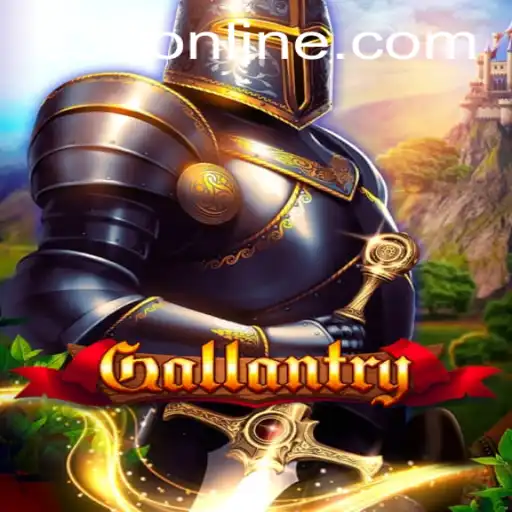Player Community


The Dynamic Evolution of Player Community in Gaming

The Dynamic Evolution of Player Community in Gaming
The gaming world has changed dramatically over the years. The rise of powerful online platforms has seen the growth of player communities as hubs of collaboration, competition, and communication. At the heart of this revolution is the concept of player community, a term no longer confined to simple gaming clans or guilds but now encompassing a rich tapestry of interactions among players, creators, and developers. A keyword that often emerges in discussions about player communities is Q36, which stands as a testament to the evolving nature of these digital ecosystems.
Understanding Player Community
Player communities represent a collective of individuals who share an interest in specific games or genres. These communities are formed around shared experiences, goals, and interactions within a game’s universe. They vary in size, ranging from small groups to global networks, with participation sometimes reaching millions. Key characteristics defining player communities include shared objectives, collaboration, support, and, in many cases, competitive gameplay.
Traditionally, player communities started as local groups meeting in person to play games. However, the advent of the internet transformed this dynamic, allowing players from around the world to connect in real time. The expansion of internet access and the development of social media platforms have fueled the growth of these communities, pushing them beyond the confines of local networks to establish unprecedented global reach.
The Influence of Q36
Within these communities, the term Q36 has gained notoriety, often discussed in forums and social media platforms. Although not a physical or tangible element, Q36 serves as a symbol, representing innovation and adaptability in the gaming sphere. It signifies strategies or features that enhance the gaming experience, often involving the adoption and integration of new technologies or methodologies.
Innovations associated with Q36 frequently lead to significant shifts in how player communities operate. For instance, it may involve the introduction of novel communication tools, enabling more effective coordination among team members during gameplay. Alternatively, Q36 might entail the implementation of features that enrich the immersive experience within game worlds, fostering deeper engagement among players.
Formation and Growth of Player Communities
As digital landscapes expanded, so too did opportunities for player communities to form and flourish. Social media platforms, gaming forums, and dedicated community websites provide avenues for players to connect, share experiences, and collaborate. These platforms not only facilitate communication but also serve as repositories for valuable resources, such as guides, strategies, and walkthroughs.
Game developers play a vital role in nurturing these communities. By offering regular updates, engaging in direct communication with players, and creating community events, developers help sustain interest and foster loyalty. Developers often rely on feedback from player communities to refine their games, illustrating a symbiotic relationship wherein both parties benefit from exchange.
Challenges Within Player Communities
Despite their many benefits, player communities are not without challenges. Issues such as toxicity, exclusion, and excessive competition can disrupt harmony and deter prospective members. Addressing these challenges requires concerted efforts from both developers and community leaders. Initiatives like enforceable community guidelines, moderation tools, and campaigns promoting inclusivity and respect are crucial in maintaining healthy community environments.
Furthermore, the rapid pace of technological change introduces constant adaptation and learning curves. Communities must stay abreast of new trends, features, and game mechanics to remain competitive and relevant. The Q36 concept is instrumental here, symbolizing the ongoing pursuit of progress and adaptation necessary for communities to thrive.
The Future of Player Communities
Looking ahead, player communities are poised to become even more integral to gaming culture. Technological advancements, such as virtual reality and augmented reality, promise to redefine community interactions, creating more immersive and interactive experiences. Moreover, the proliferation of esports and competitive gaming will likely continue to bolster community growth, drawing in wider audiences and inspiring future generations of players.
Ultimately, the future direction of player communities hinges on a delicate balance between tradition and innovation. While core principles such as camaraderie, collaboration, and competition remain unchanged, the tools and platforms driving these interactions evolve at an unprecedented rate. The term Q36 encapsulates this ongoing journey, symbolizing the unyielding quest for innovative solutions that enhance the gaming experience for all community members.
In essence, player communities are no longer just about playing games. They represent vibrant, multifaceted ecosystems, each contributing to the broader gaming industry landscape. Whether through shared triumphs, collective problem-solving, or simple enjoyment of a favorite pastime, these communities continue to shape the future of gaming in profound and exciting ways. The journey, fueled by concepts such as Q36, is one of endless potential and opportunity, eagerly awaited by gamers worldwide.
Exploring the Exciting World of LionGems3pots
An in-depth look at the intriguing game LionGems3pots, including its gameplay, rules, and current relevance.
Discovering BigBoss: The Game That Redefines Strategy with Q36
An immersive look into BigBoss, the revolutionary strategy game featuring the unique Q36 element.
Exploring 'Gallantry': A Unique Strategy Game in the Context of Modern Gaming
Discover the captivating world of Gallantry, the strategic board game merging historical tactics and futuristic elements, including the innovative 'Q36' feature.
 Skip to content
Skip to content




